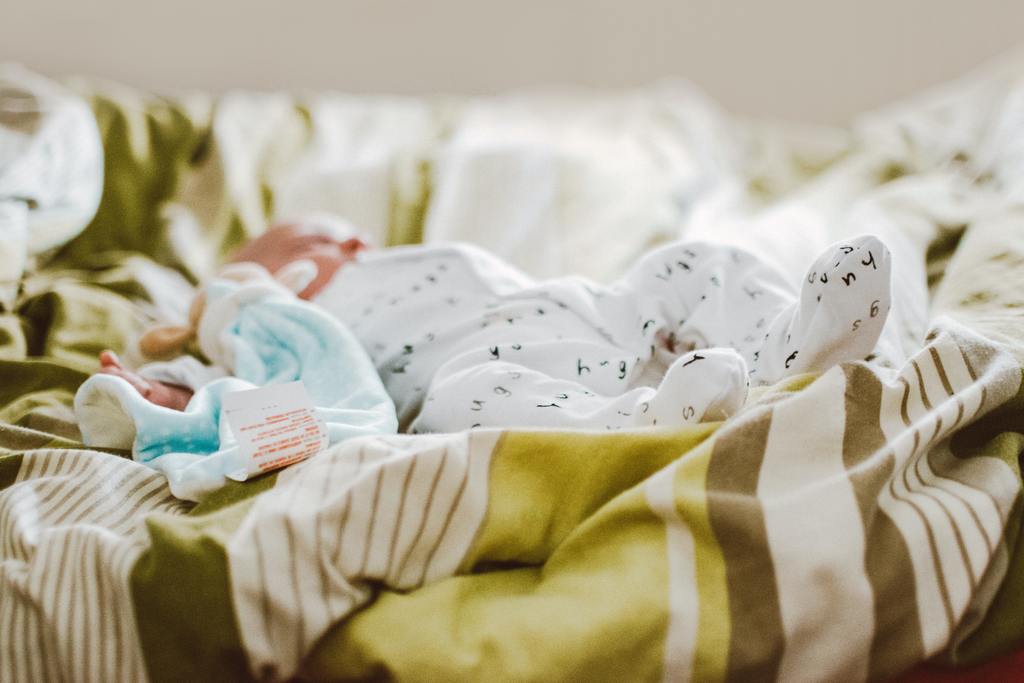How to establish a sleep routine for your baby

Establishing a sleep routine for your baba is not only a great way for you to get some much-needed rest, but it is also an important way for them to learn how to self-soothe, as well as ensuring they get the sleep required to grow and develop.
There may not be a way of predicting when your newborn will sleep, and every child is different, but when yours is ready, here are some top tips to help you initiate your baby’s sleep schedule.
Create the right environment
To encourage a sleep schedule, your baba’s naps should take place in a consistent sleep environment. Your baby’s cot is the best place for a nap and this should be placed in a dark, cool room. White noise can help block out daytime sounds while a mini bedtime routine – for example, where you change your baby’s nappy and sing a song – can also help to prepare them for sleep.
Morning opportunities
Surprisingly, it is the morning nap, not long after your baby has woken up, which is often the first to stretch out into a longer sleep. Firstly, don’t be surprised if this first nap is only 45 minutes long – as that is one sleep cycle – but after they’ve had a good night’s sleep, it is a good opportunity to try and establish the routine. Especially as, for most children, as the day goes on, their behaviour may start to be affected as they’re tired, and when they are over tired, they may have a harder time napping well.
Avoid the quick nap
Once your baby is having a regular nap in the morning, it’s time to work on stretching that sleep out. One of the key things is that you shouldn’t assume the nap is over if they wake up 35 to 40 minutes after you put them down. Stop and listen to see if they fall back to sleep, as leaving them in that consistent sleep environment will help them understand that this place and time of day are for sleep.
Timing is everything
Typically, a four-to six-month-old will need three naps a day: one in the morning, one in the afternoon and a quick nap late in the afternoon to tide them over until bedtime. By seven or eight months, that buffer nap will be dropped and babies are able to take two longer naps – somewhere between 60 and 90 minutes – in both the morning and afternoon.
Take your time
Establishing a nap routine takes time and is a hard skill to learn, but it is important that you don’t give up if after a few days, it feels like you’re not getting anywhere. Your baby might have a great nap one day, but not the next and that’s normal. Don’t stop giving your little one the opportunity, as you will see progression, but, as with all milestones, it’s usually two steps forward and one step back.
Don’t compare
It is vitally important not to compare your baby to the anyone else’s. Babies are different, and they reach different sleep milestones at different times. Twelve months might be the average age for a baby to walk, but we don’t expect them all to be able to do it by then and, in the same way, your baby will determine when they’re ready for longer stretches of sleep.
Give a little spray
Simply spritz our soothing sleep spray at an arm’s length onto bedding, pyjamas, or a muslin cloth and allow it to dry before putting your little one to bed. Packed with natural and effective ingredients, our sleep mist contains a calming blend of lavender, frankincense and marjoram which works as an anxiety reliever and helps to soothe. It quietens the brain and nervous system activity, reducing agitation, anger, aggression, and restlessness and even any physical pain like tummy aches which therefore brings about sleep. Aromatherapy is a great way to get your little one to sleep. It creates a bedroom environment that is calming and also helps them to associate a particular scent to sleep. So, when you change their sleep environment, for example on holiday, they will be able to associate the sleep of the mist with bedtime.
How much sleep does a child need?
Throughout your child’s life, their sleep needs will change as they grow and develop. Here is a rough guide to the amount of sleep your child needs over a 24 hour period:
Infants (0-2 Months)
Typically sleep for about 16 hours total during the day and night, with shorter but more frequent sleep sessions.
Infants (3-11 Months)
At this age, they generally need 13-15 hours of sleep.
Toddlers (1-3 Years)
At this age, toddlers typically need 12-14 hours of sleep
Preschoolers (3-5 Years)
Usually need 10-12 hours of sleep.
School-Aged children (5-12 Years)
At this age, children need 9-11 hours of sleep each night.
Teenagers (13-17 Years)
Teenagers need 8-10 hours of sleep each night



